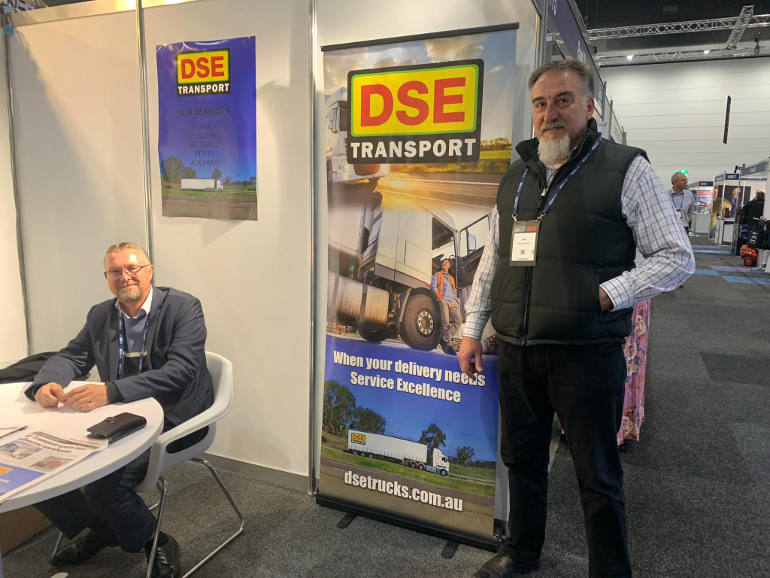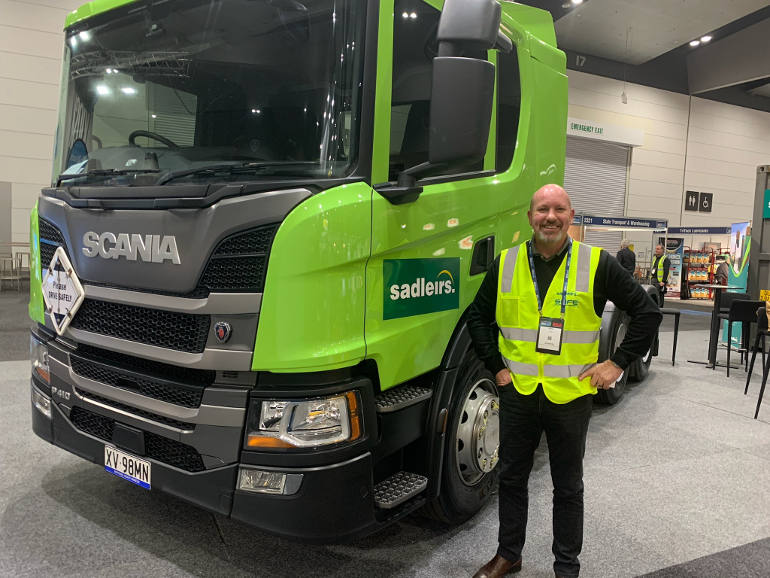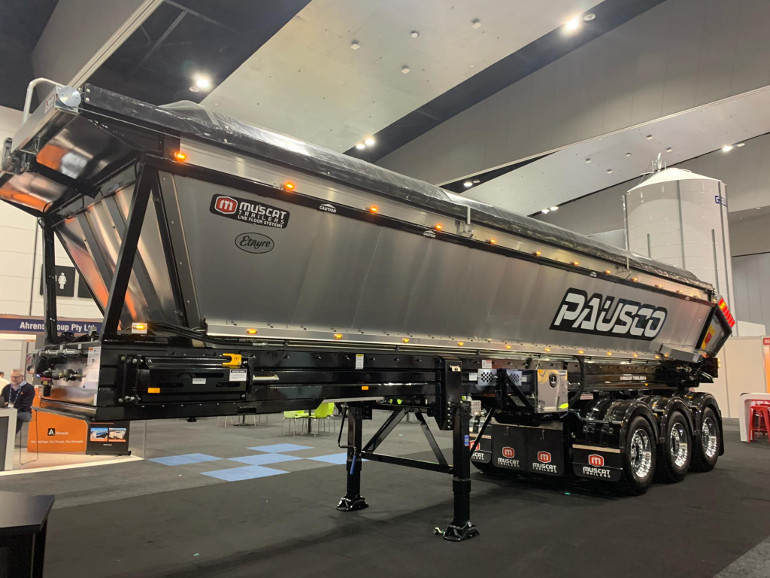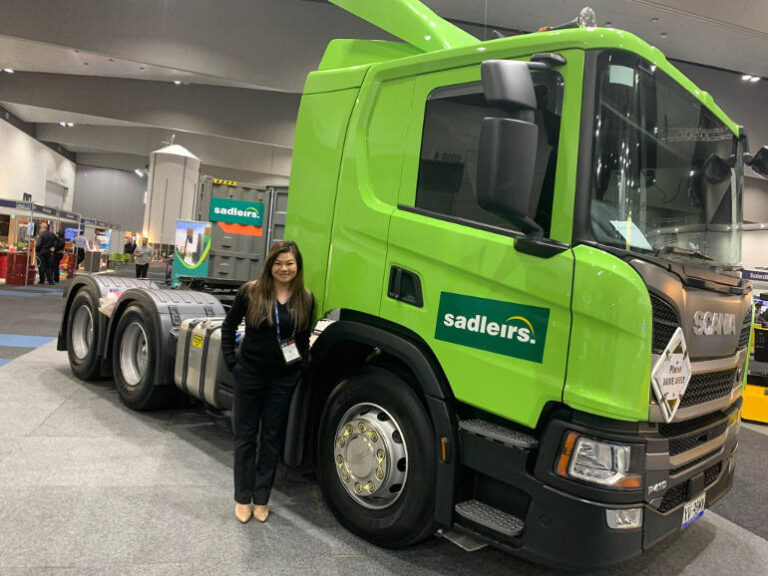A constant refrain at the Megatrans 2022 supply chain and freight exhibition and conference in Melbourne during August was a concern about the shortage of truck drivers. So I decided to ask a few of the speakers and exhibitors for their thoughts on the truck driver shortage, recruitment and desirable attributes.
Caroline: There’s a constant refrain at this conference — Megatrans 2022 — about a truck driver shortage in Australia. Can you explain why it has become so critical?
Jenny Liu, Broker Development Manager, Sadleirs.
“At the moment the national supply chain is crippled with a labour shortage, specifically with warehouse personnel and truck drivers. At Sadleirs, a lot of our states preload a lot of our drivers the night before, and if for example, the next morning, he, or she, wakes up and is COVID positive, that means that we have to find, or scramble to find another driver to replace them, to deliver the current load we have planned. A lot of times we don’t have a surplus of drivers, in which case we need to go out to the temp market. But with all carriers and all businesses experiencing the same, we find it hard to be able to replace that one driver that was down so potentially if we had a couple of down over COVID or the flu, we are delayed in delivering or picking up any kind of freight that needs to go into your distribution centres — food, consumables and that sort of stuff. That’s why there’s a massive shortage on shelves.”
Caroline: So how do we attract truck drivers into the industry?
Peter Anderson, CEO, Victorian Transport Association.
“We’ve got to realise that driving a truck is a skill and it’s a skill that has to be taught and learned. It’s not something that just anybody can do, not anybody can drive a truck. It takes a certain amount of awareness, aptitude and attitude to be done properly and professionally. And that’s what is not recognised in the broader community or in the structures of the bureaucracy. Truck driving is treated the same as a barista — not necessarily part of a skilled and trainable process. And this is something we at the VTA are adamant about. We want to stop the process of just licencing people to drive trucks and start to train them.
“As a truck driver, you have to be cognisant of what the freight is, what it does in transit, how to manage it, what it does when you actually get to the place where you have got to pick up or deliver, because you’ve got to secure it and make sure you understand what the parameters are. And those kinds of things have to be taught. They’re not. We don’t want them to be taught over five or 10 or 15 years of experience. We want them to be taught from the first day that people come into the industry.”

Caroline: Why should we value truck drivers?
Jeff Hayes, National Business Development Manager, DSE Transport.
“Well, there’s a couple of reasons why we should value truck drivers. One of them is the truck drivers are Australia’s economy. Without truck drivers we don’t get anything. The’ve got to do deliveries — food, commerce, general. Truck drivers are probably the most important people on the scale of jobs in Australia. That’s something COVID showed us.
They do have a slogan on their trucks: “Without trucks Australia stops.” Also, without drivers Australia stops.”

Caroline: What attributes make a great truck driver?
Nick Papadopoulos, State Manager, Victoria, DSE Transport.
“In reality it’s a driver who treats the work not as a job, but as a career. Someone that’s really interested in actually the transport game and presents himself well to his customers — good hygiene, communicates well with the customers, communicates well with the operations team if there’s any issues and delays, and, overall, has a passion to provide good customer service. For too long we’ve been treating drivers as just drivers. But they’re more than that. They’re the face of a company, they’re the face of my customers and it’s important that they’re able to communicate well with my customers and build up rapport with them. Going the extra mile to keep the customer happy. I think that they’re the attributes of a good driver.”

Caroline: Why is it so hard to recruit truck drivers?
Jason Cogo, Broker Development Manager, Sadleirs.
“I’ve been in the industry now for 20 years, and in the last two and a half, three years in particular, it’s been increasingly difficult to find drivers. I believe the main reason for this is, obviously, the reduced number of new Australians coming into our country. That has made it difficult and because of that, the number of people within our country who were in the industry and want to drive, the options have grown so dramatically. For example, we had drivers who were with us who would leave us to go to other big brand transport divisions because they’re offering incentives for drivers, for example, a 20 percent and more increase in their pay, incentives for weekend work, those sorts of things which the average transport company can’t match. As well as that, the conditions are a little bit more difficult in the transport industry in that you’re starting at 6 a.m and you might be working till 6 p.m. A lot of the guys who drive nowadays can be an Uber driver, they can drive for Coles, they can drive for a lot of other home delivery sorts of groups where the role is easier. They work their own hours. They’re not held to account by you know a business like ours. If they don’t scan correctly, if they’re not getting the signature, if they’re delivering poorly, they get disciplined, whereas if you’re an Uber driver, you get a five-star rating, or a four-star rating, no big deal and they work when they feel like it. So I think the home delivery services that we have in Australia now has contributed dramatically to the reduction in people wanting to work for transport companies. The task itself is much greater than a home delivery.

Caroline: Why is it so difficult to recruit truck drivers at the moment?
Troy Azzopardi, general manager at Muscat Trailers.
“The main issue now, with regards to the shortage, is really the work-life balance. A lot of truck drivers now want to be home by a Friday. That limits transport operators, freight companies. People want to be home so they’re going to fit their potentially seven days into a five-day envelope. And if they get issues such as they’re in Brisbane, and they’re getting held up. It’s hard for them. They want to be home and it affects the freight company. Truck drivers have got small children or they have young families. They want to be more involved in sporting. Things have changed. Generationally. It was accepted where a truck driver would work longer weekends. So it’s hard to recruit. It’s why a lot of people employ from overseas.”






